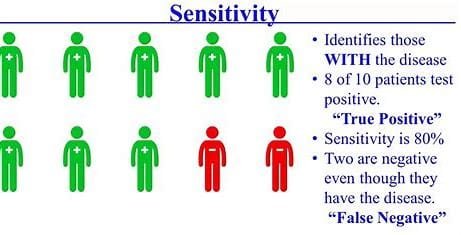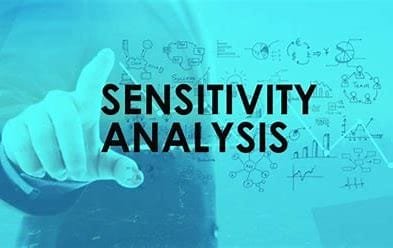Sensitivity is described by how people view things around them and react toward any stimulus, be it physical, emotional, or even environmental. It is one factor in the molding of health. High sensitivity makes the effect on the environment’s stimulation quite intense on mental and, accordingly, physical health as well. This paper provides insight into sensitivity, which reflects its influence on the effects of health, coupled with strategies to cope with them.

1. Definition of Sensitivity
Sensitivity in psychological terms would mean one’s capacity to perceive and respond to sensory information, emotional cues, and environmental factors. Highly sensitive individuals would process much information deeper and be more aware of subtleties, thus requiring much downtime to regain stimulus levels. According to research, sensitivity is thought to be primarily caused by genetic and neurological factors but also by life experiences. People, even though differently situated, display sensitivity differently: some exhibit extreme levels, while in others the influence of sensitivities of the external triggers is more feeble or weak.
2. Dimensions of Sensitivity
Dimensions come in two major forms under which they express themselves differentially regarding health:
There’s emotional sensitivity that involves exaggerated awareness in reaction to those emotional clues. These kinds of situations create stress or anxiety within people if those emotions cannot be controlled within such times because sensitivities make people appear more on edge with attacks over criticism or negative remarks/tense scenarios.
Environmental Sensitivity:
This suggests reactions to environmental stimuli like noise, light, crowds, and strong smells. A very sensitive environmental person may easily become agitated in crowded, noisy settings or environments that just so happen to be extremely stimulating to the senses.
Physical sensitivity:
This refers to the sensitivity to physical factors such as pain, temperature, or texture. Physical sensitivities may leave a particular individual more susceptible to debilitating chronic pain disorders or becoming easily discomforted by physically exerting situations.
3. Impact of Sensitivity on Mental Health
Sensitivity is a double-edged sword when it comes to mental health, which can both be a source of strength and a challenge.
High sensitivity is associated with more exaggerated responses, which breed stress and anxiety. Common issues become much more difficult, overwhelming in some instances, and may even result in panic attacks.
Emotional Burnout:
Extremely emotional and sensitive personalities might face emotional burnout because of constant exposure to such stimuli. These personalities need long periods of rest and recovery time after interacting socially or carrying out activities that exhaust them mentally, as their mental resources are depleted quicker.
Sensitive people tend to become depressed if they do not feel understood or supported. Increased sensitivity towards others’ moods and reactions may result in self-doubt or isolation, which might have a negative impact on mental health.
Empathy and Emotional Intelligence:
On the positive side, sensitive persons often have very empathetic and emotionally intelligent persons in them, which may portray good relationships with people and good interaction. This allows them to pass through society with lots of care.
4. Sensitivity and Physical Health
As sensitivity also brings impacts, it has shown effects within the body through stress responsiveness.
A chronic pain and sensory processing is that the sensitive individual tends to be more sensitive to the pain, making him/her more liable for chronic pain disorders such as fibromyalgia and migraines. Such an individual would be an improved caregiver of their bodies but has a perception of even little changes in their bodies—this is also not favorable health management.
Hormonal Imbalance:
Stress might even cause hormonal imbalances. The major stress hormone for the body is cortisol. Those who are highly sensitive feel the elevated levels of cortisol very frequently. Such elevated levels have often led to weight gain, fatigue, and impaired immunity.
Sleep Disturbances:

Sensitivity to light, sound, or discomfort will interfere with good quality sleep. Lack of sleep may trigger the mental and physical health condition. This leads to fatigue and a reduced capability to face stress.
Immune system weakening:
Stress triggered by environmental and emotional sensitivity seems to weaken the immune system gradually. It makes people more vulnerable to infections and diseases.
5. Stress management techniques for overcoming sensitivity
Managing sensitivity requires understanding individual limits and finding coping strategies to reduce the impact of sensitivity.
Mindfulness and Meditation:
Mindfulness practices, including meditation and deep breathing, soothe the nervous system and reduce stress. Mindfulness techniques enhance concentration, resilience, and emotional regulation in sensitive individuals.
Setting boundaries is just recognizing who you are and setting those with others; it helps sensitive souls avoid overexposure to stressful environments and keeps their socializing limits.
Sensory breaks:
taking a regular break in very calm and quiet settings to recharge, which helps prevent burnout and stress in such overwhelming environments.
To Get Help:
Therapy or counseling may offer effective techniques for managing sensitivity. A talking therapist can help people be more aware of their triggering stimuli and find better ways of managing themselves.
Healthy Lifestyle Practices:
Engage in regular exercise, maintain a good diet, and sleep soundly. These regular practices help stabilize mood swings and erratic energy levels. Such routines enhance mental and physical strength, making it easy to cope with stress for those individuals who are sensitive.
6. Sensitivity as an Asset
Despite the challenges, sensitivity can be a great strength. Most sensitive people are empathetic, insightful, and focused on details. Such personalities become assets in fields that rely on interpersonal skills, creativity, and emotional intelligence. Such people can improve their lives and work if they come to appreciate and understand their sensitivity.
7. Conclusion

This sensitivity affects the health of humans to a great extent and is often attached to not just mental but also physical wellness. Such people are always prone to troubles, including higher stress levels, more burnout conditions, and chronic pain, but coping can help improve overall sensitivity. With sensitivity placed alongside knowledge of personal limits, one will lead a balanced and meaningful life while safeguarding their mental and physical well-being.



